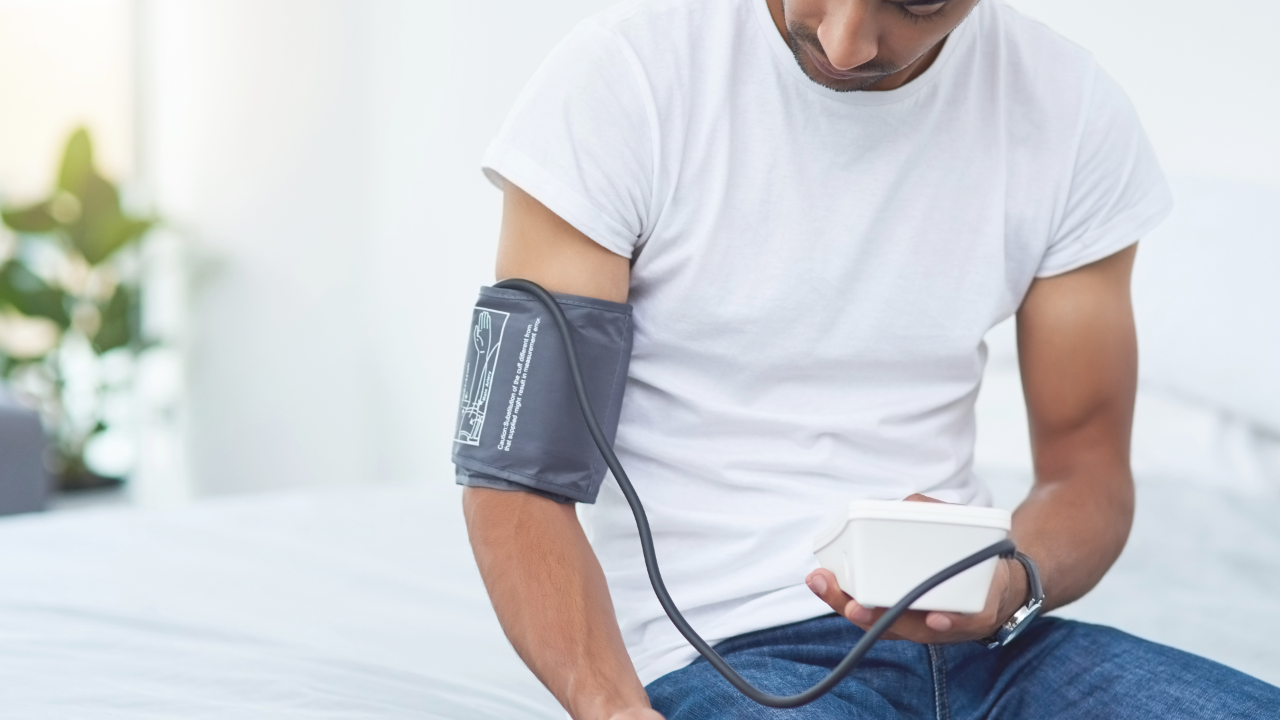High BP? Culprit isn't just salt

It’s widely known that dietary sodium (salt) causes fluid retention, which increases blood volume, and therefore results in higher BP.
However, not everyone knows reducing sugar can be even more effective at lowering BP.
Sugar. Really? Come on, how?
First, a quick reminder of what blood pressure (BP) is and how it works:
BP is the measure of the force of blood flowing through the arteries in the body. It is expressed as two numbers: systolic blood pressure (the higher number) represents the pressure in the arteries when the heart is beating, while the diastolic blood pressure (the lower number) represents the pressure in the arteries between heartbeats. Several factors will affect your BP, including age, gender, weight, and diet.
The best analogy for BP is water in a garden hose—the pressure increases as more water is blasted through it. And, increased blood flow can damage your blood vessels, as well as actual organs including your heart, brain, kidneys and eyes. Unfortunately, symptoms of elevated BP aren’t always obvious, hence, it’s referred to as the ‘silent killer’.
How does sugar really impact blood pressure?
To understand how, I have to introduce a couple of terms and explain a little biochemistry…bear with me (I’ll keep it simple!).
- Nitric oxide (NO) is produced naturally in the body, it's important for many things, but one of its most vital purposes is vasodilation (i.e., the relaxation of the inner muscles of the blood vessels causing them to widen, which increases circulation). For this reason NO is considered one of the most powerful regulatory molecules in the cardiovascular system.
- Uric acid is a waste product found in the blood…it’s created when the body breaks down purines. Foods high in purines (e.g., seafood especially lobster, sardines & shrimp, red meats, organ meats such as liver), foods high in sugars (especially those high in fructose corn syrup), and alcohol (especially beer) increase levels of uric acid.
So now you know the key players, but what’s the connection?
Excess sugar, especially fructose, consumption raises levels of uric acid in the blood, which in turn inhibits the production of nitric oxide (NO) (1, 2, 3).
Without NO, vasoconstriction (i.e., narrowing of the blood vessels) can result, which causes high blood pressure. Sugar also contributes to elevated BP by increasing inflammation, and insulin resistance.
↑Fructose & alcohol & purines => ↑Uric acid => ↓Nitric oxide => ↑Blood pressure
What can you do?
Check your uric acid levels. The reference range on a standard lab (e.g., LabCorp) is 2.5 - 7.1, but from an optimal health (read: functional medicine) perspective the preference is for uric acid to be at 5.5mg/dL or below.
Other markers I recommend you keep an eye on are as follows:
- Fasting blood sugar should ideally be < 95 mg/dL
- Hemoglobin A1c should ideally be between 4.8-5.4%
- Fasting insulin should ideally be < 8 mIU/mL
- C-reactive protein should ideally be less than 1.0 mg/L (or at least in range from 0.00-3.0 mg/L)
(Note, these are functional medicine reference ranges too)
FYI—It can take up to several months to see improvements in these measures, but you can rest assured you’re setting the stage for lower BP readings, and therefore are on your way to enhancing your heart health, if you follow the recommendations detailed below:
- Regulate your blood sugar
Regulating blood sugar is an essential health foundation; it’s where I start with everyone. If you’d like more guidance on this front I can help either working with you 1:1 or via my group class. - Leverage your stress management techniques
Do something to facilitate relaxation everyday. This is worthy of another post, but suffice it to say that including some stress reduction modality e.g, transcendental meditation is associated with a reduction of ~5 mmHg in systolic BP. - Move everyday
Exercise is non-negotiable; it’s a must! Regular aerobic physical activity (e.g., brisk walking) ≥ 30 minutes a day, most days, is associated with an approximate 4-9 point mmHg reduction in systolic BP. - Increase your phytonutrient intake
A diet rich in fruit and vegetables is associated with an ~8 mmHg drop in systolic BP. - Be cognizant of rotating your diet
If you’re eating sardines everyday for their superb Omega 3 content, prioritize switching things up. Not only is it boring to eat the same foods everyday, it’s not necessarily healthy. FYI, I’ve seen elevated uric acid levels (without excess fructose/sugars/alcohol) solely as a result of eating high purine foods, all the time!
Figuring this out takes time and effort. My job is to help you enjoy the process, and eliminate the struggle.
I hope this has helped you appreciate there’s another big player in the world of lowering BP (it’s not just salt).
“It is time for guideline committees to shift focus away from salt and focus greater attention to the more-consequential food additive: sugar. A reduction in the intake of sugars, particularly fructose…would help not only curb hypertension rates, but might also help address broader problems related to cardiometabolic disease.” (4)
Related Links:
- Knox, J., Weiss, D., (2021). Sugar intake impacts blood pressure. Very Well Health.
https://www.verywellhealth.com/sugar-and-hypertension-5117022#:~:text=Eating
%20too%20much%20sugar%20can,leading%20to%20high%20blood%20pressure - Stephanie Nguyen & Robert H Lustig (2010) Just a spoonful of sugar helps the blood pressure go up, Expert Review of Cardiovascular Therapy, 8:11, 1497-1499, DOI: 10.1586/erc.10.120
- Walton, A. G. “ (2014). Study suggests sugar is worse for blood pressure than salt: Really? Forbes, https://www.forbes.com/sites/alicegwalton/2014/12/11/study-is-sugar-worse-for-blood-pressure-than-salt/?sh=13cb6eb25d3d
- DiNicolantonio, J. J. & Lucan, S. C. (2014). The wrong white crystals: not salt but sugar as aetiological hypertension and cardiometabolic disease. Open Heart, 1(1), doi: 10.1136/openhrt-2014-000167


